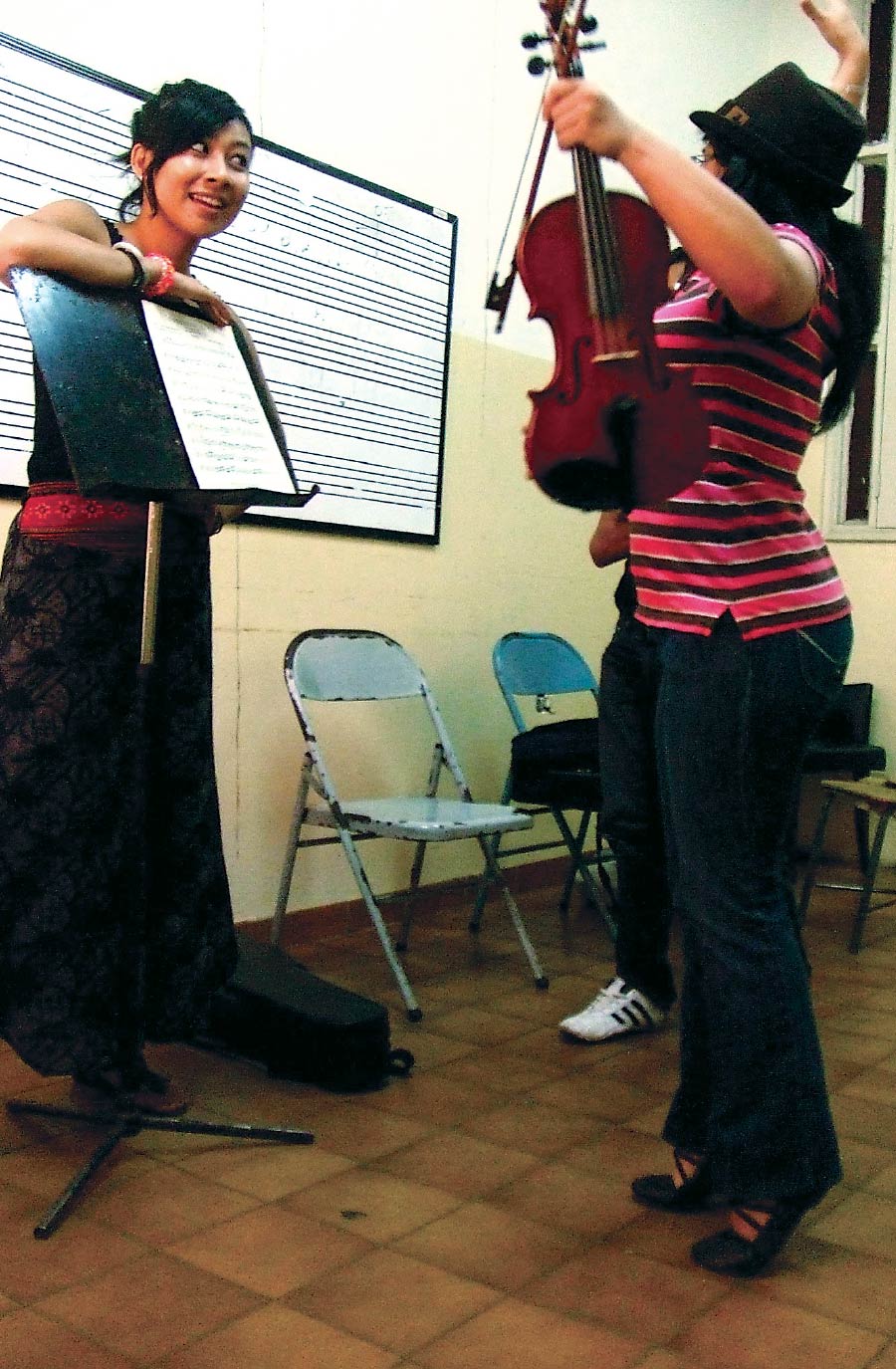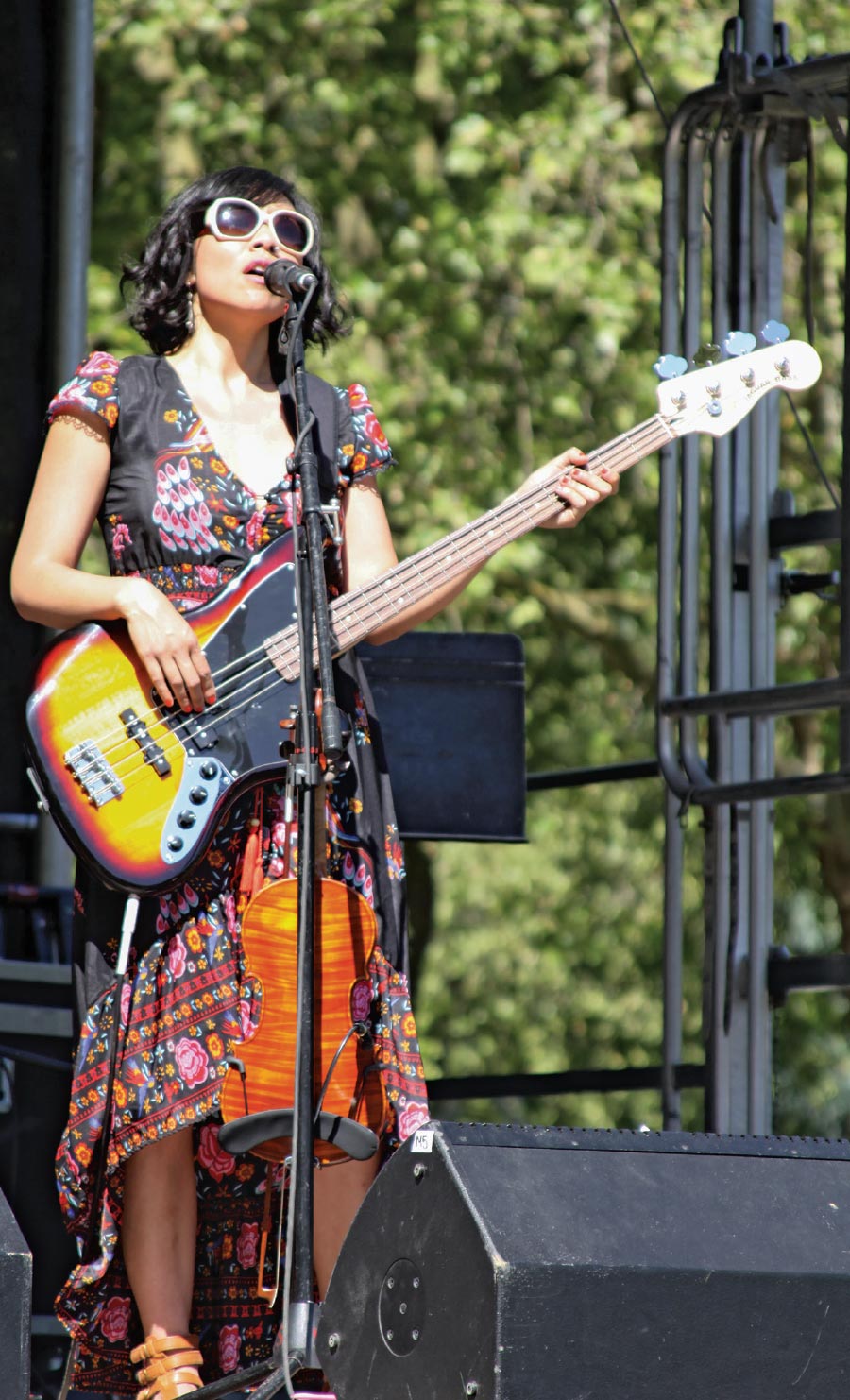Instruments of Change
nlearning. That’s the mission of Stephanie Hsu ’08. As the founding executive director of Yakima Music en Acción (YAMA), she leads an after-school program in Washington state that has taught hundreds of schoolchildren, many from historically marginalized communities, to be self-confident risk-takers.
After school, nearly 100 children in grades three through 12 flock to Garfield Elementary School in Yakima, a town of 100,000 people two hours east of Seattle.
For the past 11 years, children have arrived five days a week for intense, but fun, two-hour sessions.
With violins and violas to their chins and cellos and stand-up basses beside them, they study under a dozen YAMA instructors. After mastering works by Beethoven to Brahms, and from mariachi to video game music, they play in three orchestras that perform for parents and townspeople.
The music culture Hsu has created puts a premium on passion and gratitude, rather than perfection and conformity. “YAMA celebrates wins, and it celebrates mistakes as proof you’re learning. Every time students make a mistake, we teach them that they can learn from it,” she says.

The eldest child of immigrants from Taiwan, Hsu grew up in Edgemont, N.Y., and struggled when she was younger to navigate life in her parents’ adopted country.
One of her early music teachers encouraged her to play in a way that moves people.
“It didn’t matter about the notes. I learned what cultural ideas to espouse and what to try to unlearn,” says Hsu.
“I spent a lot of time trying to figure out ‘Where do I belong? How am I seen? Do I have a voice? If so, what is it?’ I was a shy kid. Music was a way for me to feel I had some power and to learn how to value myself,” she says. “I would hope that now I’m constantly reminding every young person I teach that ‘You do have a voice.’”
Violin lessons starting at age 5 won her the concertmaster seat in the New York Youth Symphony that performs in Carnegie Hall. But she felt stifled by what she saw as classical music’s pursuit of perfection over passion. “I didn’t believe that that’s how we should be living our lives,” she says. “That’s a very hard cultural layer to change.”
At Swarthmore, Hsu played in multiple chamber music ensembles. She also worked with John Alston H’15 and the Chester Children’s Chorus.
Her senior thesis on the empowerment of Asian American youth in New York City’s Chinatown wowed her advisor, Henry C. and Charlotte Turner Professor of Education Lisa Smulyan ’76.

After graduating with High Honors in sociology, anthropology, and educational studies, Hsu’s life changed. By chance, she saw a 60 Minutes profile of El Sistema, a Venezuelan program that has given thousands of low-income children free instruments and lessons. It emphasizes that increasing access to music education should go hand in hand with a high standard of excellence, and the passion fueled by music-making in community.”
Seeing the episode made Hsu say to herself, “Oh, my goodness, this is it!” She then attended the New England Conservatory of Music as an El Sistema fellow to learn its methods. After traveling to South America to find out firsthand about the program, she launched hers in Yakima.
Hsu teaches children, manages staff, creates her nonprofit’s budget, and acts as its primary fundraiser. Calamity struck in 2015 when she had to scramble after an abrupt loss of funding. Then she battled through the pandemic without laying anyone off.
“I knew if we took care of our staff, then they could take care of students,” says Hsu, who maintained everyone’s pay through the long COVID months.
“She’s a very authentic leader,” says Hannah McMeekin, YAMA’s former director of development. “You feel her energy when she walks into a room, because she helps activate other people’s energies.”
Outside school, Hsu takes the stage in two local groups. The six-piece Killdeer String Band performs everything from Bavarian music to bluegrass throughout the Pacific Northwest. Her other love is La Cantina, an all-female trio which says its “social justice-themed music inspires action, sparks dialogue, and gives voice to the unheard.”
Hsu puts the group before the individual in whatever she does.
“I’m stronger when you’re stronger,” she says. “If I’m only for myself and my own growth, then I’m going to be missing stuff. But if I’m focused on my growth and your growth, then something bigger and different happens.”